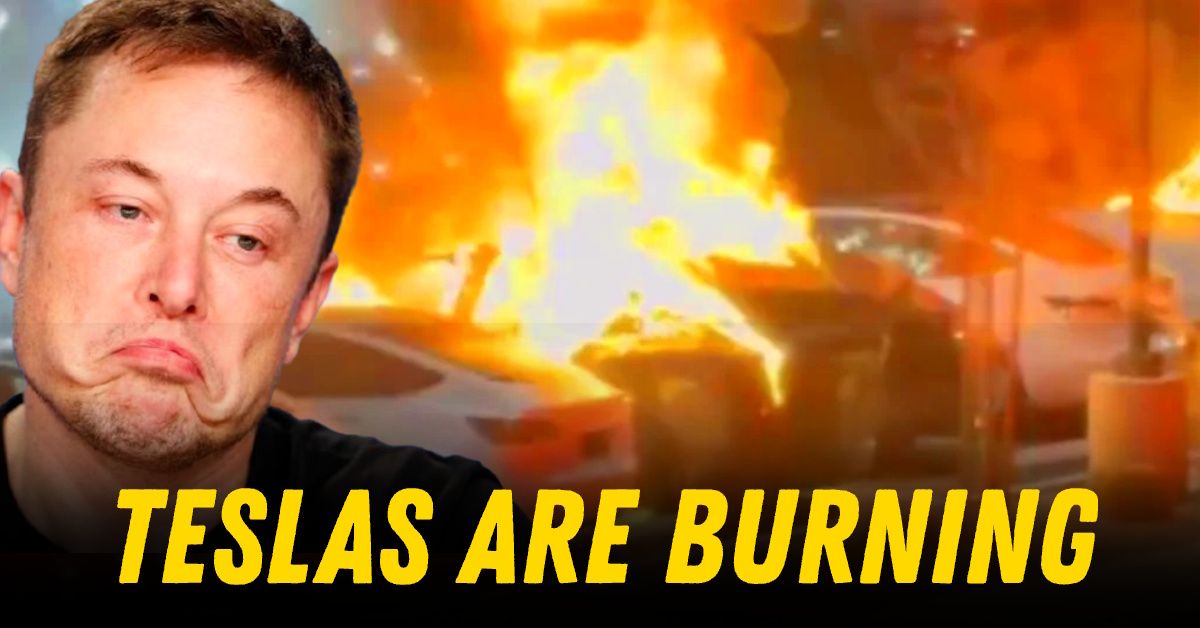Why Are People Burning Tesla Cars and Why Is Their Stock Plummeting: We Explain


Tesla, once the darling of the electric vehicle industry, is facing a dual crisis in 2025. Protesters are targeting the company's showrooms and vehicles with increasingly violent actions, while its stock has plunged dramatically since December 2024.
This troubling situation stems from CEO Elon Musk's political activities, declining sales, and growing competition. Here's a straightforward explanation of what's happening and why.
The wave of anti-Tesla sentiment is largely connected to Elon Musk's role in the Trump administration. Musk now leads the Department of Government Efficiency (DOGE), a position that has made him a political lightning rod. Many protesters are angered by his efforts to cut government programs and dismiss thousands of federal employees.
A protest movement called "Tesla Takedown" has emerged as the focal point for this dissent. Organizers are planning their "biggest day of action" on March 29, 2025, targeting 500 demonstrations at all 277 Tesla showrooms in the United States and many more internationally. They're encouraging protesters to rally at Supercharger stations as well.
Musk claims these protests are happening because he's stopping "fraudulent" government spending. In a Fox News interview, he expressed shock at "this level of hatred and violence from the left" and suggested there might be "larger forces" funding and coordinating the protests.
What began as peaceful demonstrations has escalated dramatically in some locations. Police departments across the United States are investigating numerous violent incidents targeting Tesla properties:
• In Las Vegas, an individual shot at and set several Tesla vehicles on fire using Molotov cocktails while spray-painting "RESIST" on the building
• Seven Tesla charging stations near Boston were set ablaze
• A showroom in Tigard, Oregon experienced gunfire damage twice in one week
• In Colorado, a woman was charged with using Molotov cocktails to vandalize vehicles at a showroom
The Trump administration has taken a hard stance against these attacks. Attorney General Pam Bondi has labeled them "domestic terrorism" and promised "harsh repercussions" for those involved. The FBI's Joint Terrorism Task Force is investigating some incidents7.
While these protests unfold, Tesla's stock has experienced a dramatic decline. Since December 2024, Tesla shares have plummeted by more than 50%, erasing over $800 billion in market capitalization. This makes it the worst-performing major technology stock during this period.
On March 10, 2025, Tesla stock dropped 15% in a single day – its worst one-day performance since 2020. This decline has significantly impacted Musk's personal wealth, reducing it by more than $100 billion.
The reasons behind Tesla's stock collapse extend beyond the protests and include fundamental business challenges:
1. Declining Sales: Tesla's vehicle deliveries have been disappointing. In Europe, January sales were down 45% compared to the previous year. The company's automotive revenue in the final quarter of 2024 fell 8% year-on-year.
2. Extreme Valuation: Even after losing nearly half its value, Tesla stock trades at a price-to-earnings ratio of 121 – extraordinarily high for an automotive company. This suggests investors were pricing in massive future growth that may not materialize.
3. Increasing Competition: The global electric vehicle market has become much more competitive. Traditional automakers and new startups are introducing compelling alternatives to Tesla's vehicles, putting pressure on the company's market dominance.
Tesla faces an uncertain future as it navigates these challenges. The company needs to address both the protest movement and its business fundamentals.
Musk has promised to launch paid robotaxi rides in Austin, Texas by June 2025, which could potentially transform Tesla's business model. However, he has previously made similar promises about full self-driving technology that didn't materialize on schedule.
Meanwhile, the "Tesla Takedown" movement continues to gain momentum. Organizers insist their movement is committed to nonviolence, but the sporadic violent incidents are complicating their message.
For Tesla to recover, it will need to distance itself from political controversy, address declining sales, and deliver on its technological promises – a challenging path forward in today's polarized environment.